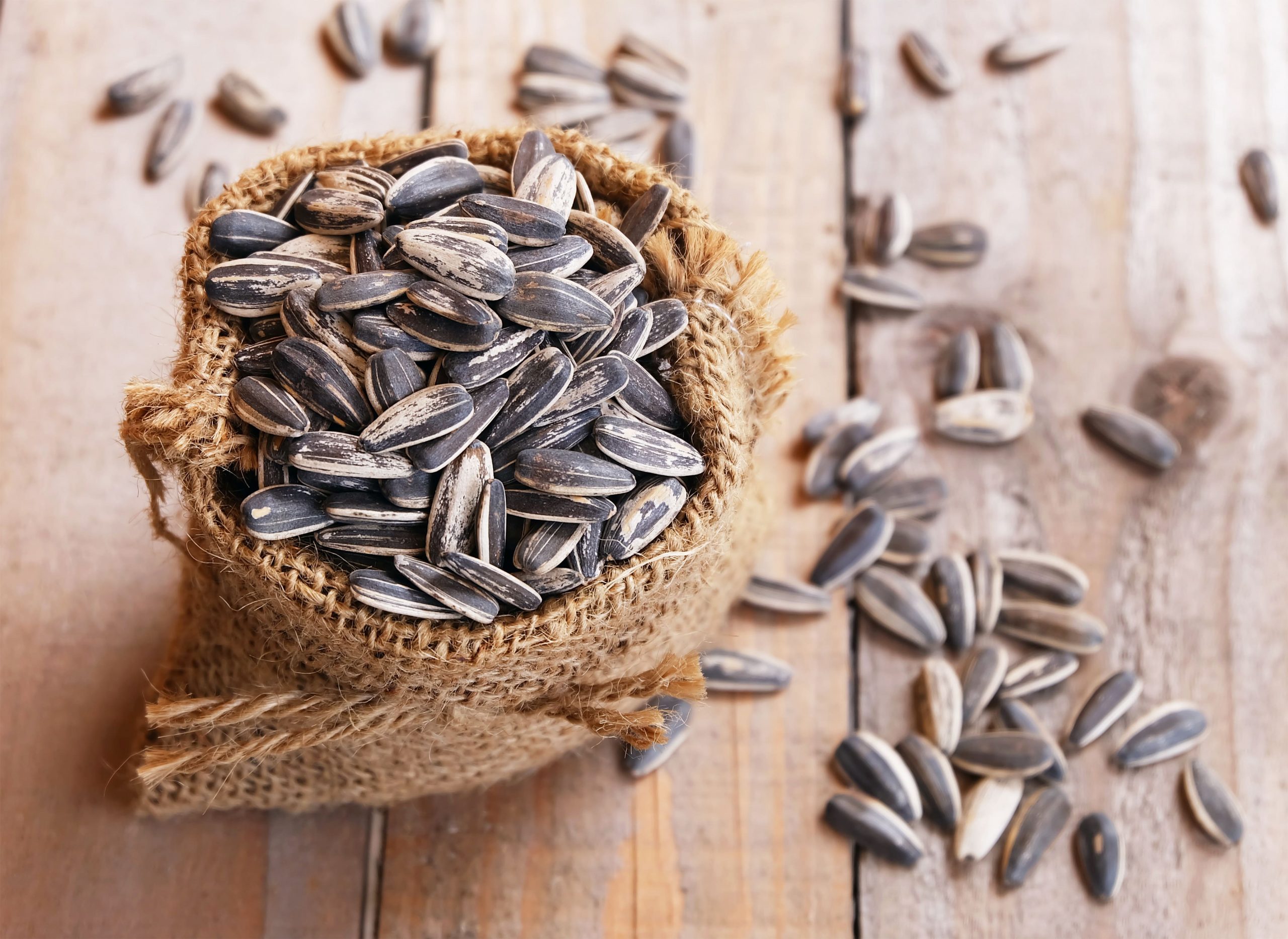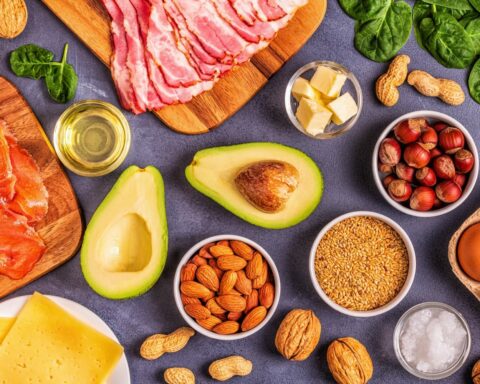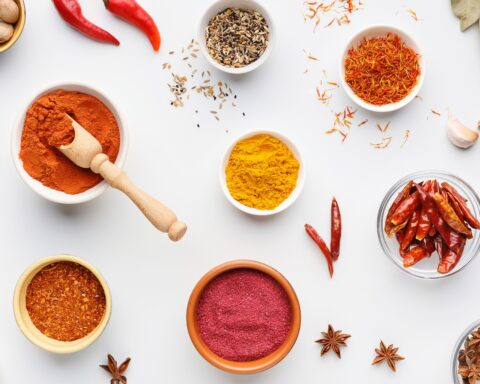Sunflower seeds are high in valuable nutrients, such as vitamin E, Niacin, folate, and vitamin B6. It helps reduce the risk of heart disease, inflammation, and diabetes.
Sunflower seeds are commonly used as snacks and are also found in nutrition bars and multi-grain bread. They are endowed with healthy fats, various vitamins, beneficial plant compounds, and minerals. Sunflower seeds’ nutritional compounds can enhance one’s general health and reduce the risks of many health concerns, such as type 2 diabetes and coronary diseases. Having complete information about sunflower seeds, their potential benefits, and how to eat them can provide the needed impetus to include these super seeds in your diet.
What are sunflower seeds?
Sunflower seeds are gotten from the head of the sunflower head that often measures approximately 30.5 cm in diameter. One mature sunflower fruit can contain 2,000 seeds. Sunflower crops are classified into two categories; the one you eat as snacks and the one grown for manufacturing oil. The edible seeds are often cased in white-and-black striped shells, called hulls. Seeds used for extracting oils are cased in solid black shells. The seeds have a mild, nutty flavor with a tender texture. The seeds are roasted to improve their taste, though they can be bought and eaten raw.
Nutritional Value
Though sunflower seeds are tinny, they are rich in many nutrients, such as vitamins, minerals, and fats. For instance, an ounce of shelled, roasted seeds contains 14 grams of total fats and 163 calories. The same quantity of seeds contains 5.5 grams of protein, 6.5 grams of carbs, and 3 grams of fiber. It also provides minerals, such as vitamin E, Niacin, folate, vitamin B6, zinc, iron, magnesium, copper, and pantothenic acid.
Vitamin E and selenium found in sunflower seed act as antioxidants, protecting the body cells against the damaging effects of free radicals. Free radicals are feared for their ability to worsen chronic diseases. Some studies also indicate that sunflower seeds contain essential plant compounds, such as flavonoids and phenolic acids that act as antioxidants for cell protection. Sunflower seeds can also be sprouted to enhance mineral absorption since sprouting reduces mineral inhibiting factors.
Health Benefits of Sunflower Seeds
Several studies attribute many health benefits for sunflower seed, including good heart health and low cholesterol levels. The seeds can contribute to low blood pressure and reduced blood sugars due to their high vitamin E, protein, magnesium, and other compounds. Additional health benefits include:
Inflammation
Chronic body inflammation can cause a sea of diseases as it weakens the immune system. For example, an increase in inflammation markers, such as Co-creative protein, is associated with the risk of type 2 diabetes and heart disease. One study with a population of over 6,000 adults found that those who ate sunflower seeds or any other seeds five times a week lowered their C-creative protein by 32% compared to those who ate no seeds. Vitamin E present in most seeds helps reduce C-creative protein levels, thus lowering inflammation.
Reduces heart disease
Heart attacks and stroke are the results of high blood pressure. Some compounds in sunflower seeds can block enzymes responsible for constricting blood vessels and increasing the chances of heart disease. Magnesium found in sunflower seeds has also been shown to reduce blood pressure. Moreover, unsaturated fats like linoleic acid in sunflower seeds can relax the blood vessels and lower cholesterol, thus lowering blood pressure.
It can help manage diabetes.
Research on sunflower seed’s relationship with blood sugars and type 2 diabetes is promising, though additional research is required. Some studies have demonstrated that eating one ounce of sunflower seeds daily can lower fasting blood sugar by 10% over six months than solely eating a healthy diet. Scientists believe that sunflower seeds’ ability to lower blood sugar is linked to their compound chlorogenic acid. There is also the reasoning that the protein and the fat in the seeds keep you full longer by slowing the rate your stomach empties, thus ensuring a gradual sugar release from any carbs you consume.
Potential Downsides of Sunflower seeds
Though sunflower is generally healthy and beneficial to the body, it has some potential disadvantages.
High Sodium and Calories
Sunflower seeds have high in calories, with one once boasting 163 calories. The shells, often eaten while snacking, are loaded with high sodium, affecting those watching their salt intake. For instance, ¼ cup of sunflower seed could have up to 2,500 mg of sodium.
High levels of Cadmium
Cadmium is a heavy metal found in sunflower seeds and can harm your kidneys if you consume the seeds regularly and for longer periods. Sunflower plants acquire this metal from the soil and then deposit it in the seeds.
Harmful effects of sprouted seeds
Sprouted seed, though nutritious, can be contaminated with dangerous bacteria like salmonella. Sprouted raw sunflower seeds can harbor this bacterium, but sprouting heated or fully dried sunflower seed can be safe since the high heat kills the bacteria.
Stool Blockages
Studies have shown that eating a huge number of sunflower seeds at one go could cause fecal impaction. The shells can not be digested, and the fragments can cause stool blockage. The blockage can prevent bowel movement, prompting a medical check-up.
Allergies
In rare cases, some people have experienced allergies to sunflower seeds. The allergies may include mouth swelling, asthma, hay fever, lesions, skin rashes, anaphylaxis, and vomiting.Sunflower farmers are likely to experience allergies as they are constantly exposed to sunflower seed allergens. Some people also experience allergies when making yeast bread couple with sunflower seeds, causing itchy hands.
Tips for Eating Sunflower Seeds
You can buy sunflower seeds that are shelled out or buy those with shells. You can remove the shells with your teeth and then eat the inner white seed. The shelled seeds can be prepared in a variety of ways as follows:
Add the sunflower seed granules to a trail mix
Stir the content into homemade granola bars
Now sprinkle it on your leaf green salad, fruits, yogurt parfaits, or on a bowl of cereal.
You could add the mixture to stir-fries, chicken salad, veggie burgers, or sauteed vegetables.
One can also grind the seeds and use the flour to coat fish or chicken or add to baked goods like muffins and bread. Sunflower seeds can get rancid faster; therefore, keeping them in an airtight container or the freezer is advisable to prevent rancidity.
The Bottom Line
Sunflower seeds can provide the added flavor to your dishes, enabling them to taste great. You can also eat raw or roasted sunflower seed and benefit from its nutritional value. It is known for its friendliness to the heart and its ability to reduce inflammation. However, sunflower seeds can cause allergies, stool blockage, and they boast high-calorie levels that could lead to weight gain. Nevertheless, it is a versatile seed that can be used in various ways to improve the taste of your dishes.
- Our Big Kitchen’ (OBK) is a non-profit organization located in Sydney, Australia - April 10, 2023
- Duos CBD, a hemp product E-commerce website - April 10, 2023
- SOFA SPOONING SEX POSITION - April 7, 2023









